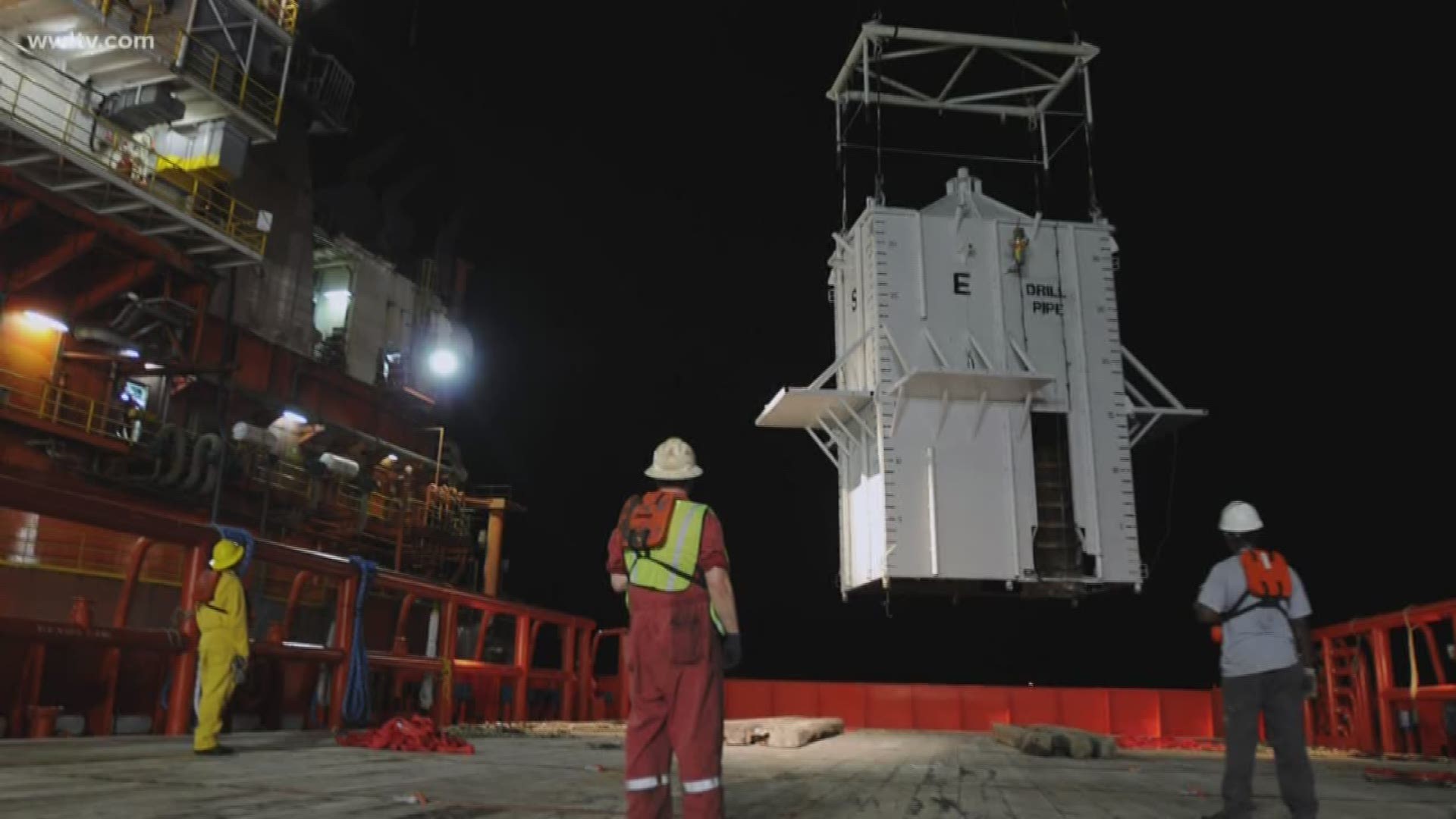New Orleans based Taylor Energy sued the U.S. Coast Guard and its contractor, trying to block them from containing a 14-year old oil leak in the Gulf of Mexico.
Taylor Energy admits it’s responsible for the oil that’s been bubbling up constantly since 2004, when Hurricane Ivan caused a mudslide that toppled one of its oil production platforms and buried 25 open oil wells under a 100-foot mud pit.
The company argues that it’s done all it could since then – and spent tens of millions of dollars doing what it and the government agreed was appropriate – to contain and clean up the oil without causing any more harm.
But the Coast Guard has recently ditched its long-held position that the amount of oil leaking was minor and any more work to capture it at the site of the buried wells would be too risky. In October, the Coast Guard suddenly accepted the results of an August study estimating the amount of oil leaking was hundreds of times larger than previously thought.
In the two lawsuits Taylor filed Thursday, the company called the new spill-size estimates “junk science” and suggests that the Coast Guard ordered new, aggressive containment efforts on Oct. 23 because of a front-page Washington Post story. In that article, the Post cited the results of the August report to say the leak threatened to become one of the worst in U.S. history.
“Taylor Energy’s sole purpose is to address and resolve the … incident in a safe and environmentally prudent manner,” Taylor said in an emailed statement. “Recent erratic behavior from the Coast Guard indicates that the federal government is suddenly more concerned about headlines in Washington than the Gulf ecosystem and the shoreline in Louisiana.”
The Post story spawned a frenzy of new national attention on the old Taylor oil leak, raising new questions about the wisdom of President Donald Trump’s plans to expand offshore drilling.
“Taylor Energy today filed suit to restore the prudent, transparent and science-based process that has protected our coastal waters for over 14 years,” the company’s statement said.
One of Taylor’s lawsuits is against the Coast Guard and its incident commander, Capt. Kristi Luttrell. It alleges Luttrell violated the company’s right to due process when it ordered the oil company to hire a specific contractor to design and deploy a new spill-containment system.
"The Coast Guard is aware of the complaint Taylor Energy Corporation filed today and will respond accordingly," Coast Guard Chief Petty Officer Lauren Jorgensen told WWL-TV. "Our immediate focus remains on swift containment of the ongoing oil discharge, and we are continuing on with our plans."
Taylor already built three containment domes to capture the leaking oil just above the sea floor in response to a 2012 Coast Guard order, but said the Coast Guard never told the company where to deploy them. Those domes remain unused, sitting on a dock near Morgan City, La.
In the suit, Taylor alleges it provided the Coast Guard with two proposed contractors to build new domes, but Luttrell rejected those proposals, instead choosing a different company, Couvillion Group.
“Taylor presented a plan that the Coast Guard deemed less than adequate or timely as is needed to contain the spill,” Jorgensen said.
When Taylor refused to enter into a contract with Couvillion in November, Luttrell blasted Taylor and seized hiring authority from the company by federalizing the spill response, a rare move when there’s a responsible party that’s willing and able to pay for containment and cleanup.
“I now find that your attempts to engage in further negotiations with Couvillion Group as to contracting terms and pricing … only serves to delay containment activity and could compromise the proposed operations of Couvillion Group, which I have determined is best suited to perform the removal operations,” Luttrell said in a Nov. 16 notice to Taylor.
Luttrell’s letter also said the national Oil Spill Liability Trust Fund would be used to initially pay for Couvillion’s work. Her order from Oct. 23 said Taylor’s failure to comply could result in fines of up to $40,000 a day or three times as much as the costs to the Oil Spill Liability Trust Fund.
The once-cooperative relationship between Taylor and the government has turned nasty. When Taylor asked Luttrell for a copy of the contract with Couvillion, which Taylor must pay, the company says it was told to file a Freedom of Information Act request, just as any member of the public would.
Taylor also sued Couvillion on Thursday, arguing the Plaquemines Parish-based firm does not have the right to go on Taylor’s property at the bottom of the sea to perform the job and would be liable for any damage or pollution it might cause by doing so.

